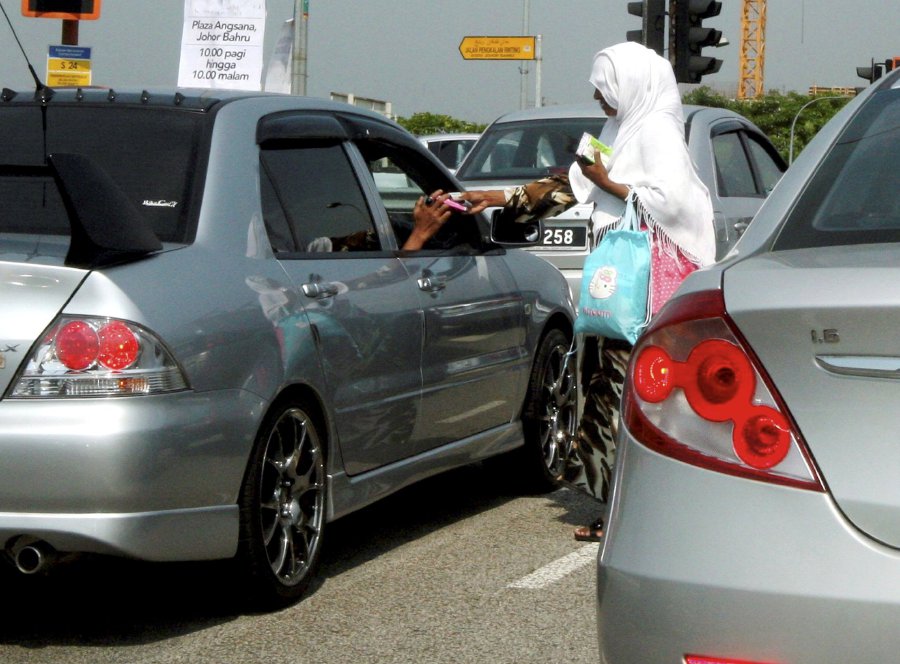Beggars In Johor Bahru Can Earn Up To RM10,000 A Month
Begging is an offence under the law.
That person you see begging on the roadside could be pocketing more cash than an average office worker every day, as beggars are reportedly earning up to RM10,000 a month
New Straits Times (NST) reported yesterday, 11 March, that beggars in Johor Bahru were found to have been netting up to RM300 a day from the donations they elicited from kind-hearted individuals that they met on the streets.
This group of beggars who were rescued were found to be persistently begging in the city centre and they would move around to avoid being caught by the authorities.
Their standard modus operandi (MO) is to congregate at traffic lights because they are able to get better "profits"
"They carry out their activities at traffic lights because they are able to earn more money (while the lights are red), and it is easier for them to flee when they see enforcement vehicles (which cannot reach them in time due to) traffic congestion," Social Welfare Department (JKM) Johor Baru officer Normawarni Mahat explained, as reported by NST.
According to Normawarni, there were no evidence that suggests that these beggars were being exploited by third parties or that they are a part of a syndicate.
After receiving 10 public complaints about the rampant begging activities in the city since last year until January, JKM has gotten several individuals off the streets
It was reported that two Rohingya women in their 30s and four children aged between six months to three years old, and an OKU (person with disability) man from Vietnam were rescued by JKM.
Three local men between the ages of 50 and 60 were also detained and charged under the Destitute Persons Act 1977 in 2016, but they were released at that time with a warning not to commit the same offence.
"However, after being caught begging on numerous subsequent occasions, they were sent to a welfare institution last year to undergo rehabilitation," Normawarni said.
In a separate report by Berita Harian, it was learned that most rescued individuals were the group involved in begging activities due to financial problems, and not having a permanent job, as well as alcohol and drug addiction.
Although it might be a lucrative "business", begging is actually illegal in Malaysia
Anyone who is caught begging or found to be homeless can be rounded up under The Destitute Persons Act 1977, which is often dubbed as the "anti-begging law".
It is an offence to beg or perform "any conduct calculated to induce the giving of alms" including the act of busking to earn money.
If a person wants to busk, they must seek permission and if relevant, obtain license from the authorities.

